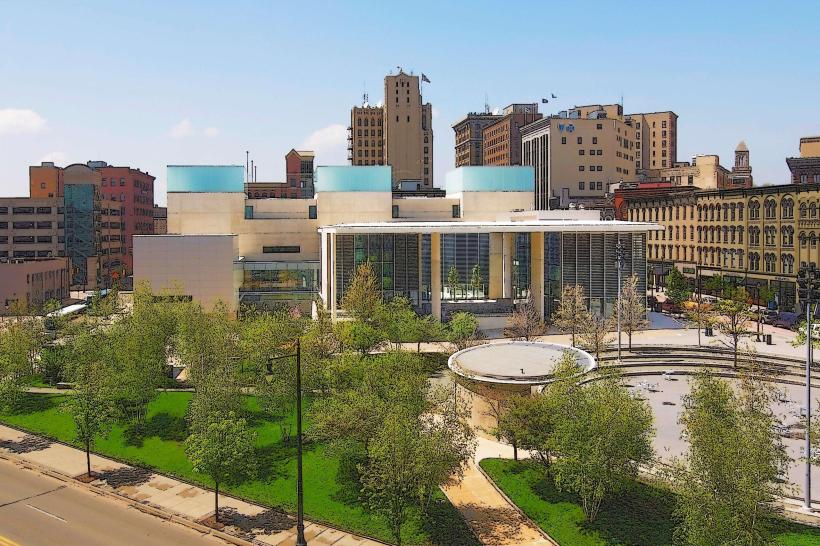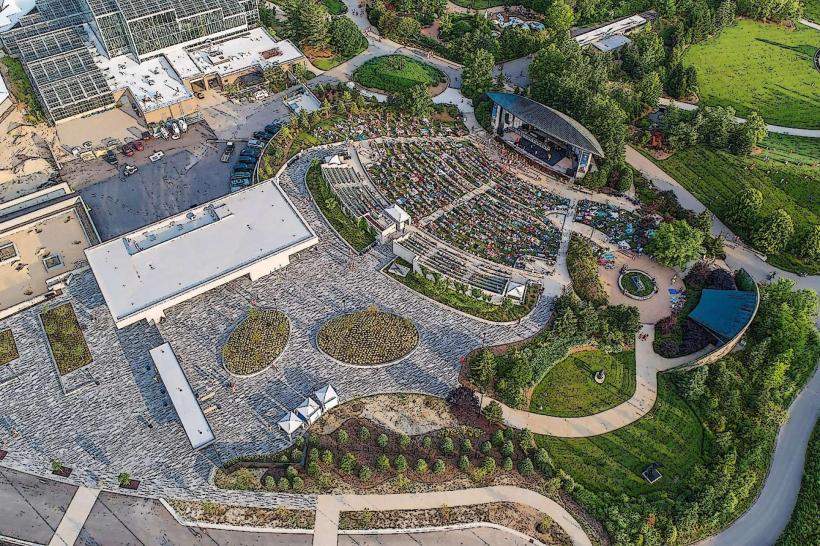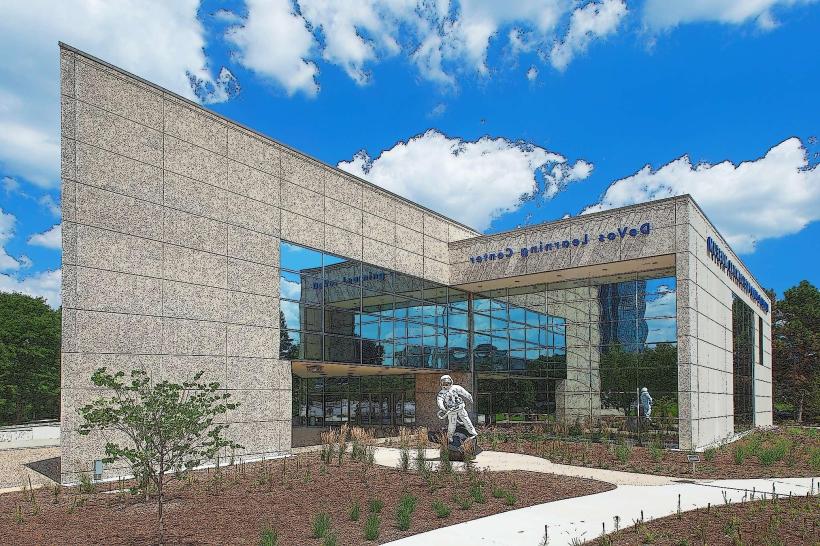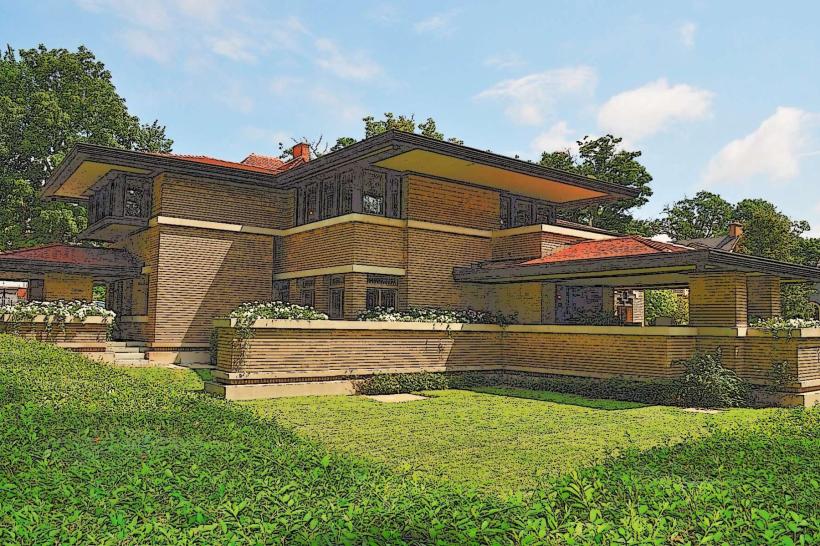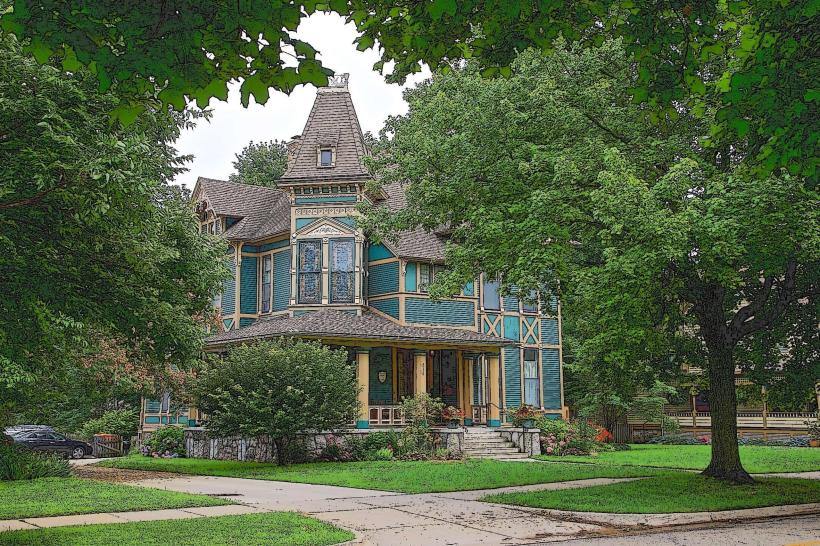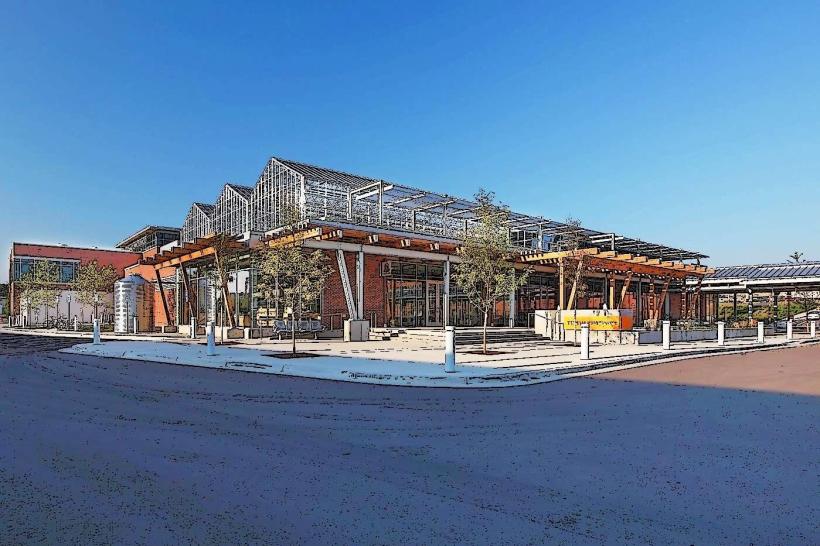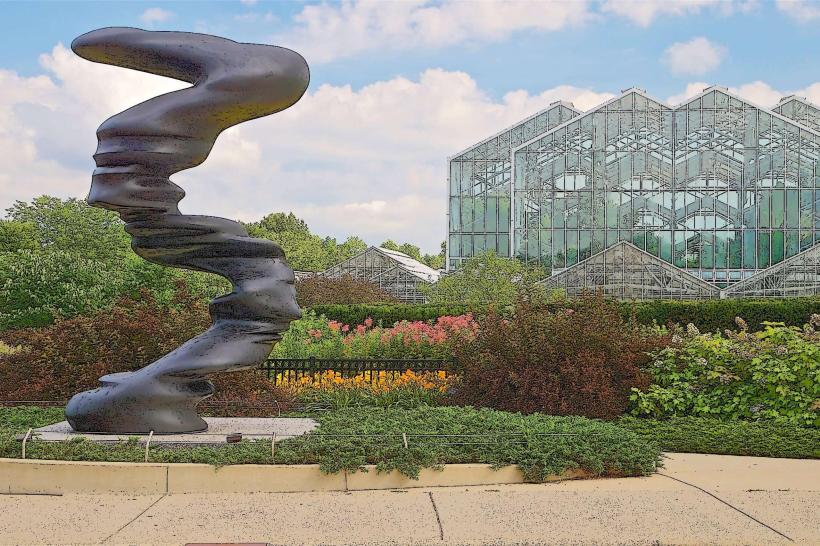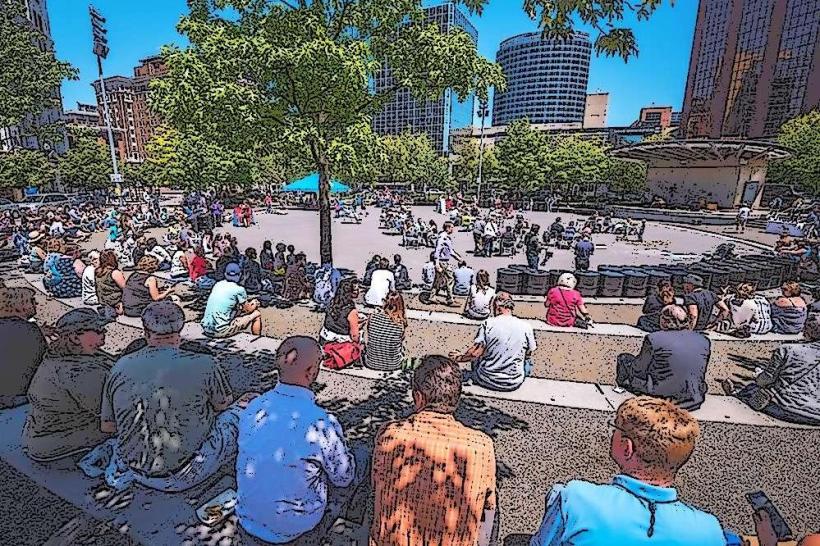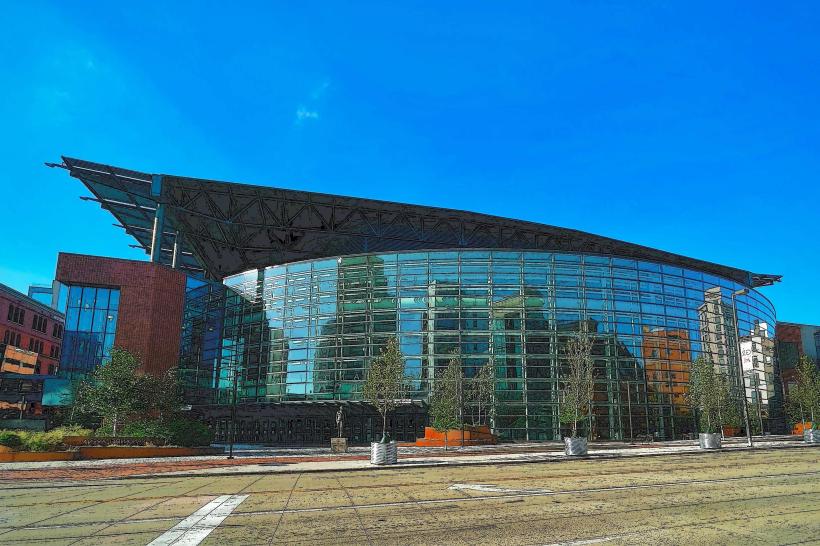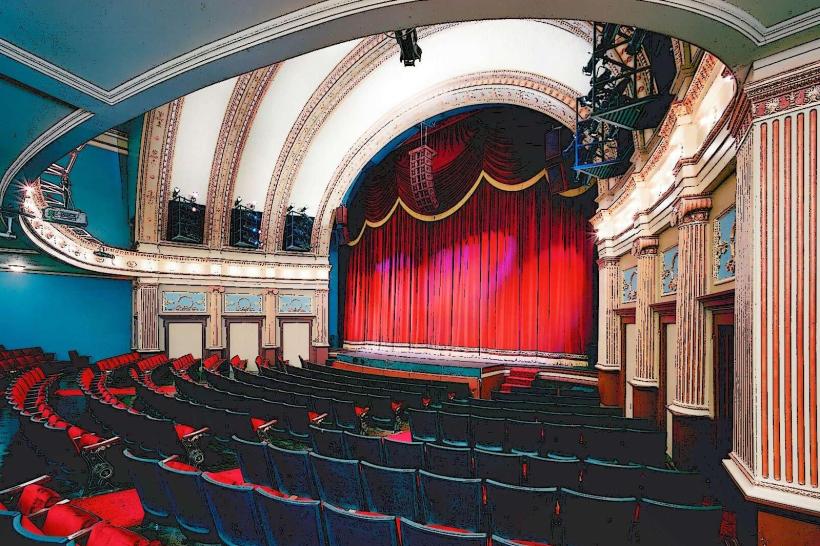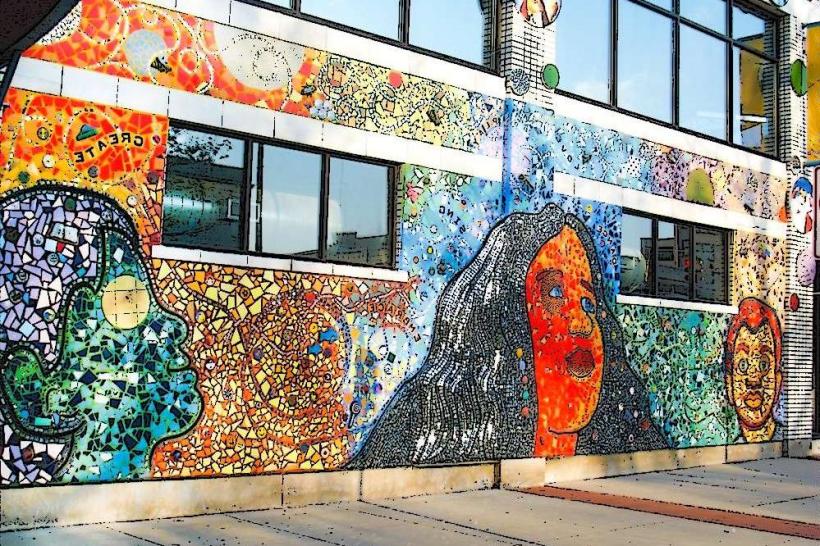Information
Landmark: Kendall College of Art and DesignCity: Grand Rapids
Country: USA Michigan
Continent: North America
Kendall College of Art and Design, Grand Rapids, USA Michigan, North America
Kendall College of Art and Design is an art and design college located in Grand Rapids, Michigan, USA. It is situated within the former Furniture City Brewery building.
Visual Characteristics
The building is a multi-story brick structure with significant architectural detailing. It features large, multi-paned windows characteristic of industrial architecture. The primary material is red brick, with stone accents around window frames and cornices. The structure exhibits a blend of late 19th and early 20th-century industrial design principles.
Location & Access Logistics
Kendall College of Art and Design is located at 17 Fountain Street NW, Grand Rapids, MI 49503. It is approximately 0.8 km west of the Grand Rapids city center. Parking is available in nearby public parking ramps, such as the Fountain Street Garage (0.1 km East) and the Monroe Center Garage (0.3 km Southeast). Public transportation is accessible via The Rapid bus system, with multiple routes stopping within a 0.2 km radius of the campus, including routes 1, 2, 4, 5, 6, 7, 9, 11, 13, 14, 16, and 27.
Historical & Ecological Origin
The building was originally constructed in 1891 as the Furniture City Brewery. It was later acquired and renovated by Kendall College of Art and Design, which moved into the facility in 1980. The structure is an example of adaptive reuse of a historic industrial building for educational purposes.
Key Highlights & Activities
Visitors can explore student and faculty art exhibitions in the galleries located within the college. The college also hosts public lectures and workshops related to art and design. Access to specific studios or classrooms is generally restricted to enrolled students and staff.
Infrastructure & Amenities
Restrooms are available within the college facilities. Some areas of the building offer natural light through large windows. Cell phone signal (4G/5G) is generally reliable within the building. Food vendors and dining options are located in the surrounding downtown Grand Rapids area, within a 0.5 km radius.
Best Time to Visit
For viewing exhibitions, the college is typically open during standard business hours, Monday through Friday, and often on Saturdays. Specific exhibition hours should be verified on the college's official website. Natural light is most effective for photography of the building's exterior during morning hours (East-facing facades) and late afternoon (West-facing facades).
Facts & Legends
During its time as the Furniture City Brewery, the building was a significant contributor to Grand Rapids' industrial output. A specific local legend suggests that remnants of the brewery's original fermentation tanks can still be found in the building's sub-basement, though this has not been officially confirmed.
Nearby Landmarks
- 0.3km Southeast: Grand Rapids Art Museum
- 0.5km Southwest: Gerald R. Ford Presidential Museum
- 0.6km East: Rosa Parks Circle
- 0.8km Northeast: Van Andel Arena
- 1.2km South: Public Museum of Michigan History




